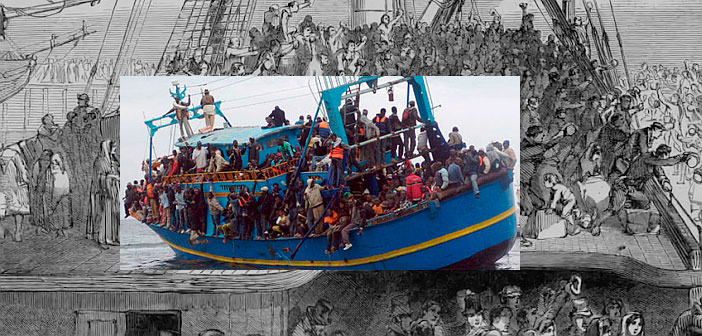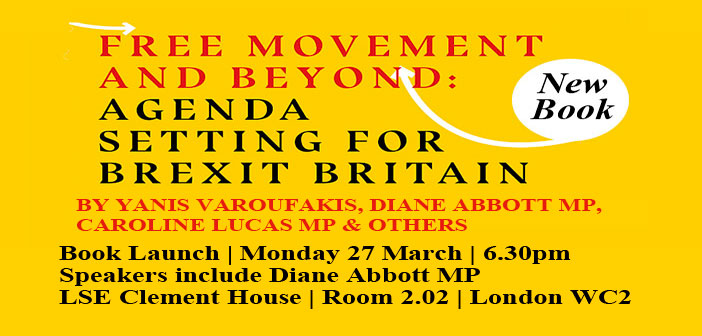Matthew Crampton’s book of narratives and songs sheds new light on the horrific cost of emigration, slavery and transportation
Source: Morning Star
The continuing refugee crisis in the Mediterranean, with its horrifying cost in human lives, is only the latest chapter of a long and brutal saga of mass movements of people.A new book, Human Cargo by Matthew Crampton, gives a sobering historical context with its subtitle Stories and Songs of Emigration, Slavery and Transportation setting out the author’s stall.
In an age when David Cameron can throw around racist jibes about “a bunch of migrants,” the stress here is on the “human” part of the title — telling the stories of displaced people from the Highland clearances to the transatlantic slave trade, the pressganged, transportees and those forced from their native lands by poverty and war.
Crampton, an author and historian, is also an accomplished folk singer and this book is a companion piece to a stage show combining first and second-hand accounts with songs of the times. As he writes in his introduction, the few first-hand accounts from past centuries are all from men who survived the horrors and led successful lives.
Folk songs are a way we can “listen opaquely” to the others, a voice for the voiceless thousands who starved or drowned or died of disease or beatings as human cargo. The voices here range from shanties to broadsheet ballads to a popular Italian song about the dangers awaiting those who took passage to the US.
Among the dozens of song lyrics, Crampton has dug up some little-heard gems that throw light on his subject from all sorts of unusual angles. To name just two, The Flying Cloud is the confessional ballad of a slaver on the gallows, while Dean Cadalan Samhach is a Gaelic lullaby sung by exiles in the Carolinas.
Crampton draws a straight line from the abuses of the 18th and 19th century to those of today. We learn first-hand, from the freed African slave Olaudah Equiano, of the crowded, lethally filthy conditions of the slave ships.
Slave or free, conditions weren’t so different for the poor Scots, Irish and others who paid for passage to the New World. They were lied to by shipping agents such as the notorious William Tapscott, crammed into pens unfit to house pigs, and forced into near-slavery in the Americas.
We move straight from Tapscott to the present-day human smugglers charging refugees thousands of pounds for passage across the Med, stacked like cargo in tiny rustbucket vessels, covered in vomit and excrement and in constant peril of drowning.
If the songs have changed then the motives behind all this human movement remain constant — war, land clearances, sex slavery, exploitation and profit.
The author has a keen eye for the telling insight and one incident speaks volumes. In 1781, the Zong, an incompetently run British slave ship, missed its destination in Jamaica and began running out of water. To save the crew and some of its cargo, its captain decided to throw dozens of the slaves overboard, alive, into shark-infested waters. As soon as the slaughter was done, heavy rain began — filling the water barrels and rendering the massacre pointless. The ship’s owners, instead of facing trial for murder, sued the insurers for compensation.
As you can imagine, this is often a dark and harrowing read. But it’s a vital one to help understand the timeless reasons people have been driven from their homes — and others have been driven to profit from them.
Human Cargo by Matthew Crampton is published by Muddler Books, price £9.99. More details and to buy.


